–Experts and specialists: The U.S.–Middle East and North Africa partnership needs new models based on innovation and technology
Global experts and specialists have affirmed that the partnership between the United States and the Middle East and North Africa (MENA) region is entering a phase that requires new visions and cooperation models centered on innovation, digital transformation and technological integration.
This came during an international symposium organized by TRENDS Research & Advisory in Washington, D.C., coinciding with the official opening of its physical office in the United States, as part of strategy to enhance global intellectual and knowledge dialogue.
The symposium was attended by H.E. Yousef Al Otaiba, UAE Ambassador to the United States, alongside an elite group of specialists and experts including Karan Bhatia, Global Head of Government Affairs and Public Policy at Google; Calista Redmond, Vice President for Global AI Initiatives at NVIDIA; Michael Brasseur, Vice President at SAAB; and Frank Backes, CEO of Capella Space.
The speakers unanimously emphasized the importance of building intellectual and technological partnerships between research institutions in the MENA and North Africa region and the United States, and stressed that strengthening cybersecurity should be a global priority through international cooperation and the development of sustainable digital capabilities.
The symposium also called for adopting responsible artificial intelligence (AI), developing ethical frameworks to govern its use, and supporting youth and innovators by funding business incubators and enhancing digital educational curricula. It underscored the importance of investing in space and remote sensing technologies as key pillars of national sovereignty and future security.
The symposium, titled “The Future of the U.S.–MENA Partnership: The Impact of Technology and Innovation”, focused on anticipating the future of U.S.–MENA and North Africa partnerships amid accelerating technological transformations.
Bilal Y. Saab, Senior Managing Director of TRENDS US, introduced the symposium held at the Park Hyatt Hotel in Washington, emphasizing that the office represents TRENDS’ effort to build intellectual and knowledge bridges between two pivotal regions in the global system. He noted that dialogue between experts and policymakers in this context is a strategic necessity to address the complex challenges imposed by modern technology.
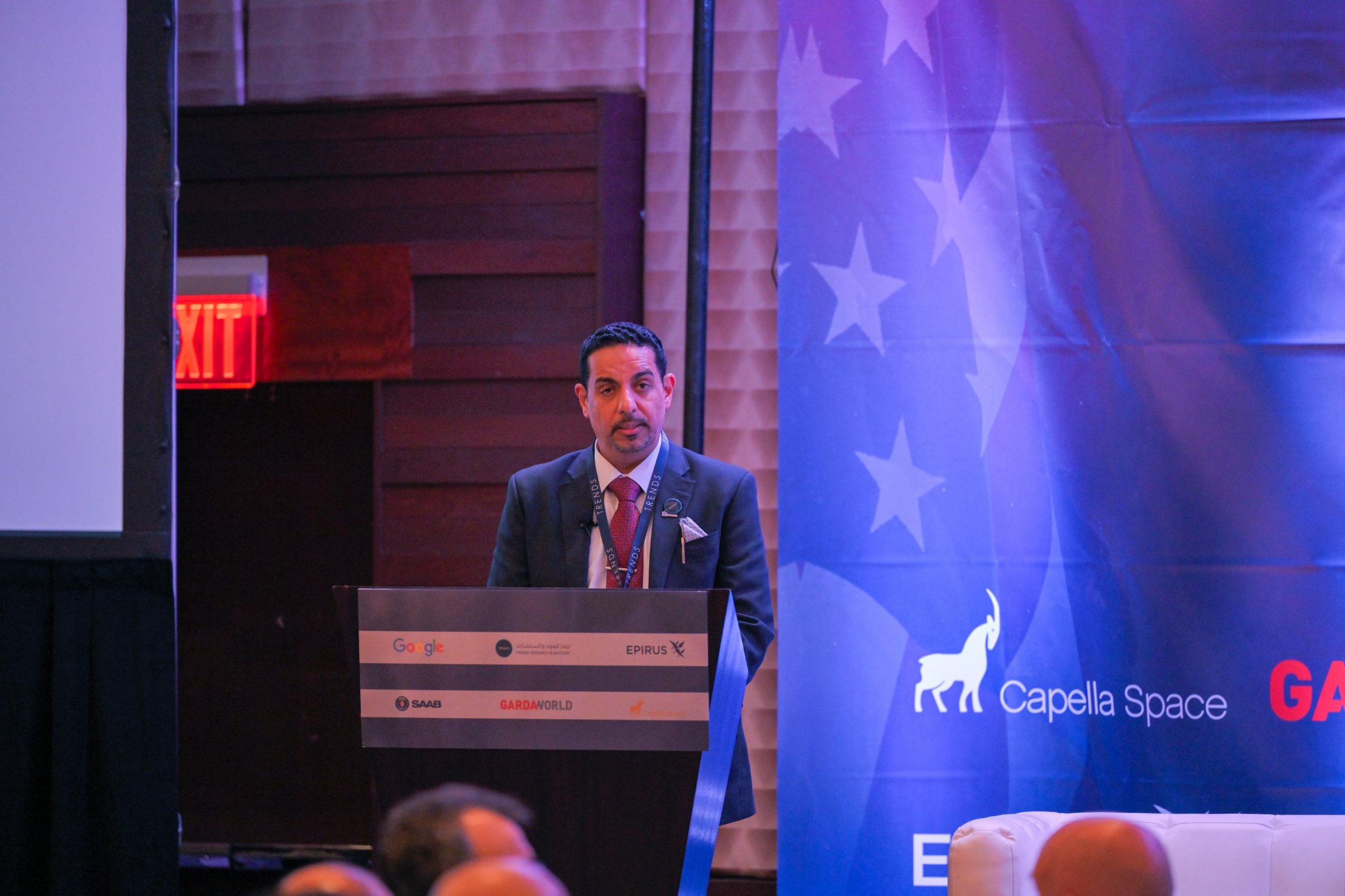
Responding to Major Transformations
In his opening remarks, Dr. Mohammed Abdullah Al-Ali, CEO of TRENDS Research & Advisory, highlighted the importance of the symposium, which coincided with the inauguration of TRENDS’ office in Washington. He explained that the office aims to serve as an effective link between TRENDS, the academic community, think tanks and decision-making circles in the United States, to foster scientific dialogue and strategic cooperation on issues of mutual interest.
Al-Ali pointed out that holding the symposium at this time comes in response to the major transformations reshaping the world, including in the global economy and in the patterns of power and international interactions, now revolving around technological supremacy.
He explained that the relationship between the United States and the MENA and North Africa region has historically been a cornerstone of the modern international system, focused for decades on energy, security and geopolitical power balances. However, he stressed that this traditional model may no longer suffice in addressing current developments, as technology has become the primary driver of development and influence.
Al-Ali underscored the importance of reimagining the future of U.S.–MENA and North Africa partnerships through a lens of innovation, noting that many countries in the region, particularly in the Arabian Gulf, have already taken serious steps toward becoming knowledge-based economies and strengthening their capacities in research, development and digital infrastructure.
The CEO of TRENDS also noted that while the United States remains the world’s leading technological power, it needs reliable partnerships based on mutual interests and respect — something that MENA countries, led by the United Arab Emirates, can provide.
He explained that the symposium discusses how innovation can reshape traditional cooperation frameworks and open new horizons in areas like cybersecurity, clean energy, health technology and space. He emphasized the importance of developing joint models for technology governance and advancing innovation diplomacy.
Al-Ali invited participants to take advantage of the symposium to outline the features of a new, more balanced and ambitious partnership in an ever-evolving world.
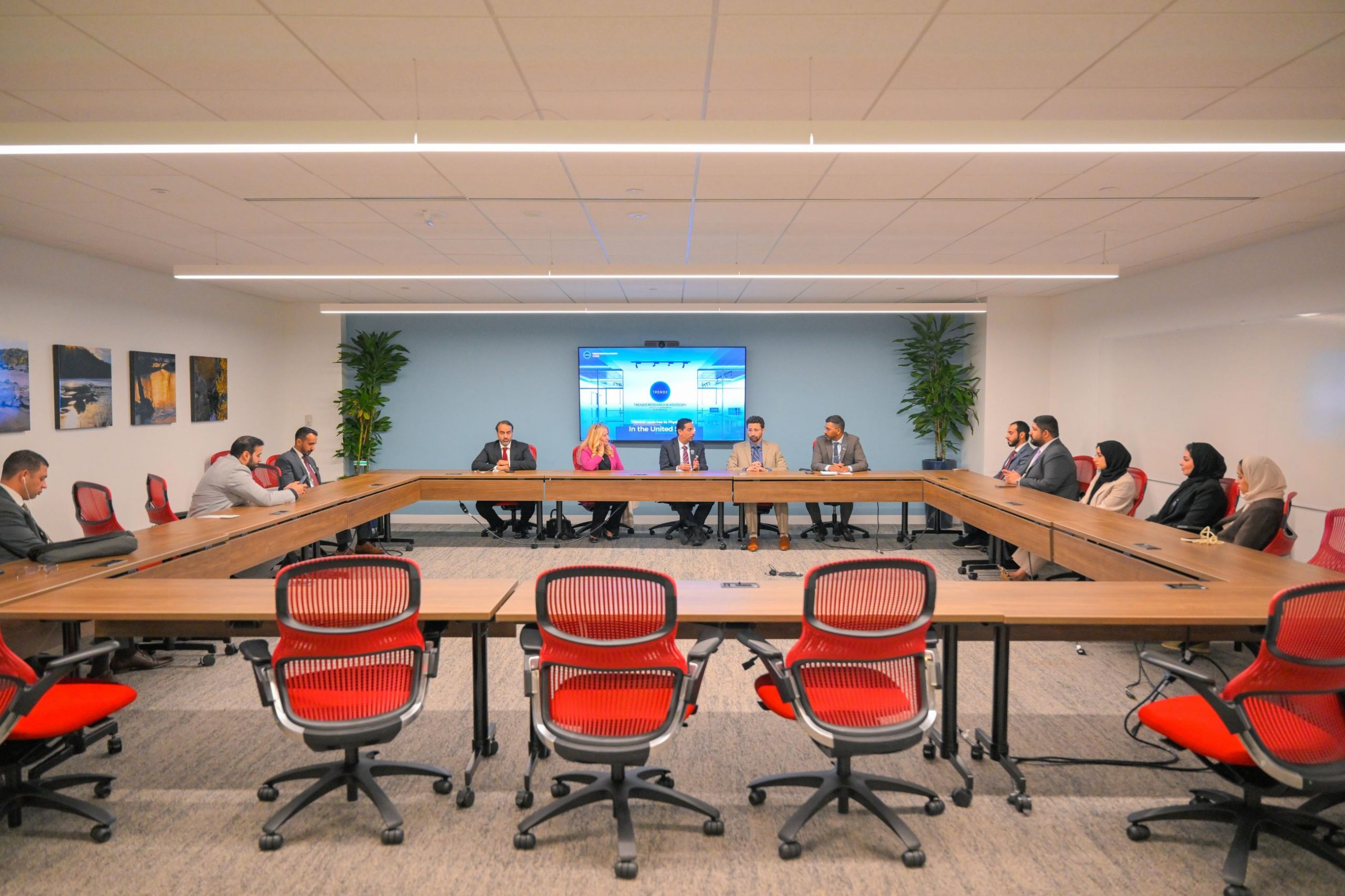
Collaboration to Build a Safe Digital Environment
H.E. Dr. Mohamed Hamad Al Kuwaiti, Head of the UAE Cyber Security Council, delivered the keynote address, presenting a comprehensive strategic vision for cybersecurity as a crucial factor in both national and international stability. He spoke about the qualitative shifts in cyber threats, affirming the need to develop international cooperation frameworks to exchange expertise and build sustainable digital capacities.
He emphasized that technology is no longer optional but has become a foundation for national security, pointing to the importance of joint action to confront growing digital challenges worldwide.
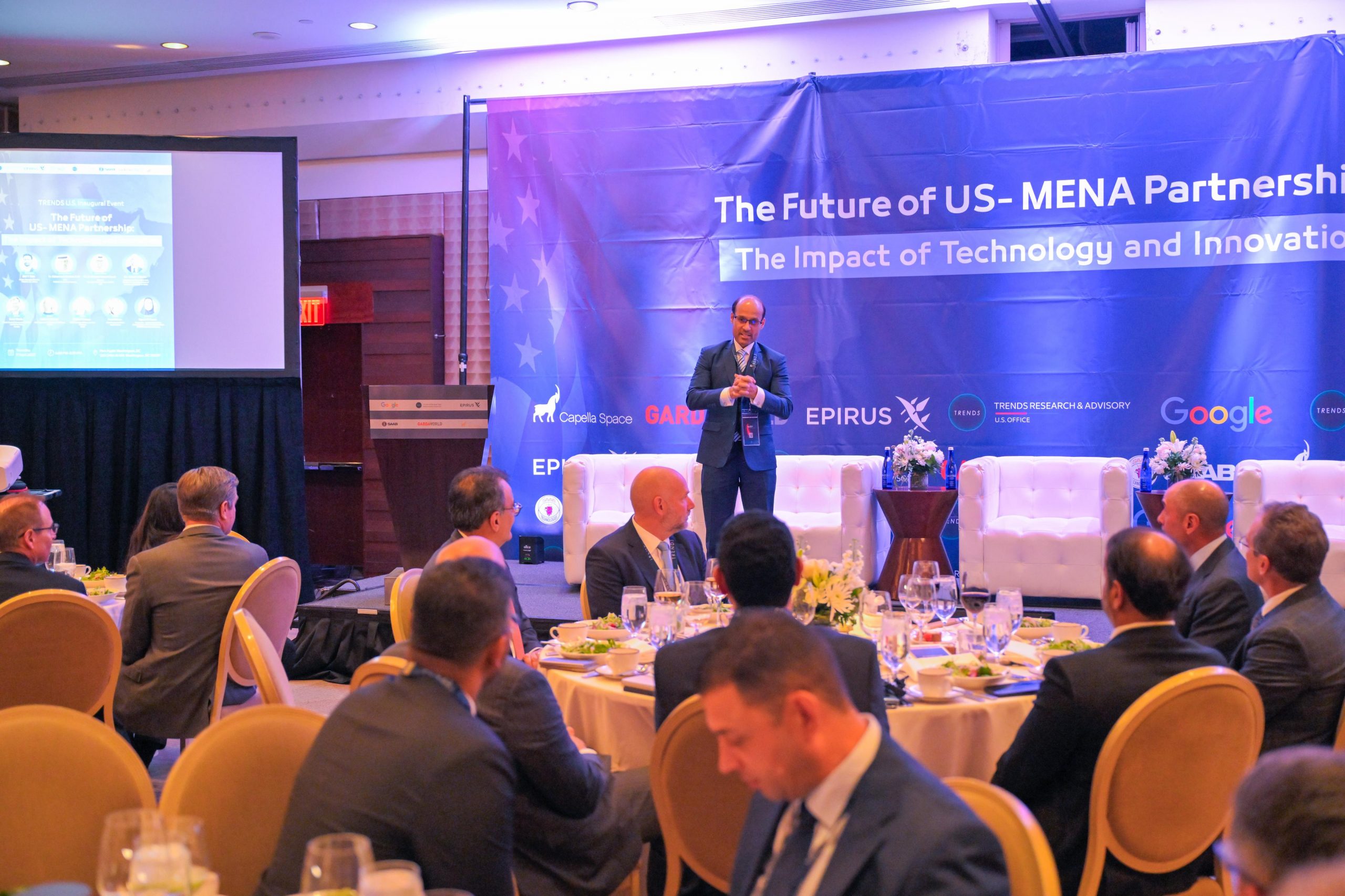
Dr. Al Kuwaiti also stressed that enhancing international partnerships in cybersecurity is the best way to build a safe and sustainable digital environment. He touched on the UAE’s strategic initiatives in this field, affirming the importance of investing in artificial intelligence as a core element of a comprehensive security strategy.
He also discussed prospects for partnership with the United States in this area, noting that integrating digital infrastructure with AI could form a vital pillar in future relations between the two countries.
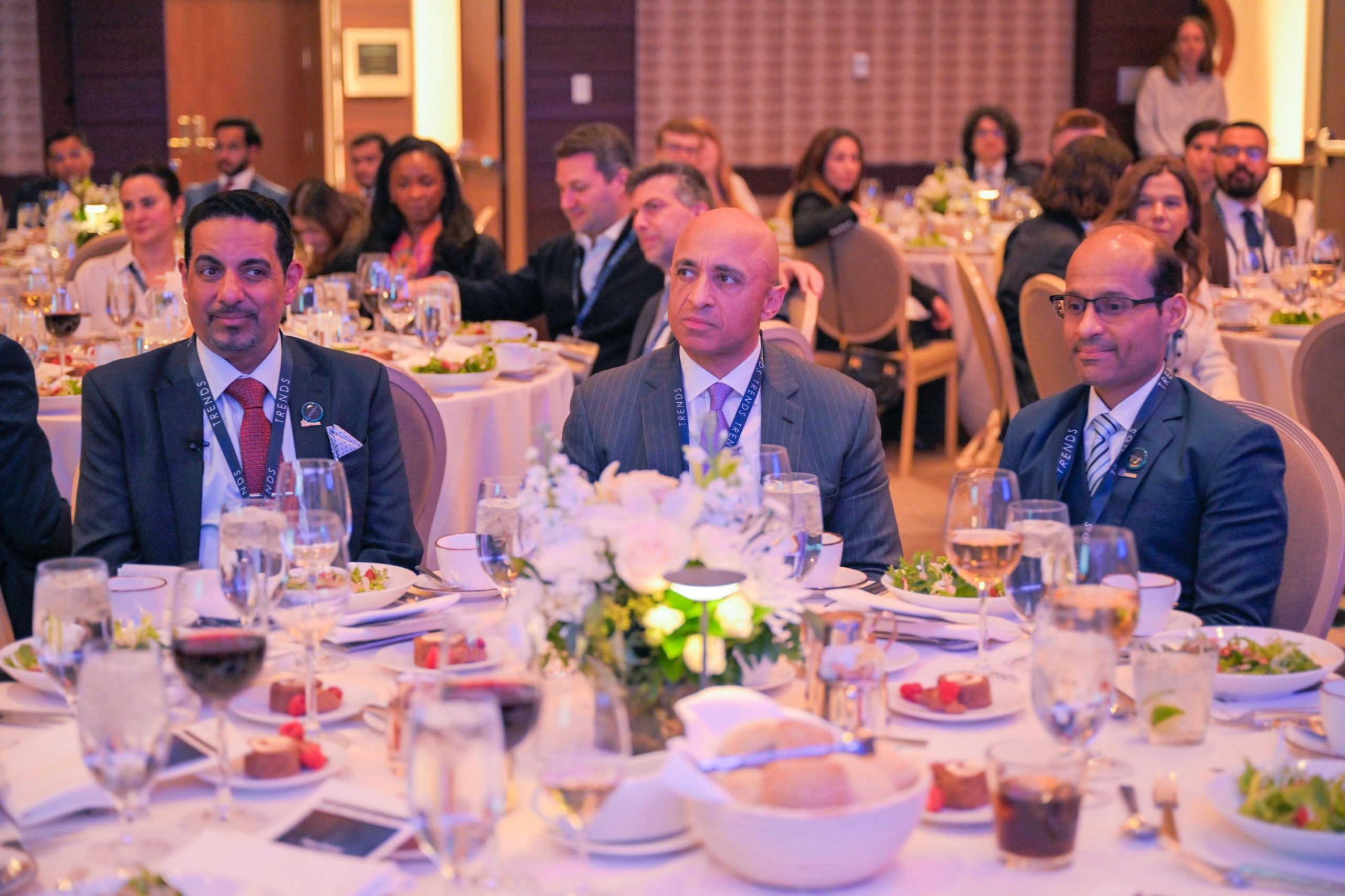
Technological Innovation
After a brief intermission, the symposium’s main session began, moderated by researcher Elyazia Al-Hosani, Deputy Head of Administrative and Media Affairs at TRENDS. It opened with keynote remarks delivered by H.E. Yousef Al Otaiba, UAE Ambassador to the United States, who reviewed the evolution of relations between the two nations in recent years. He confirmed that technological innovation is one of the most important tools for consolidating this partnership, emphasizing the UAE’s ambition to be a global partner in technology with significant human and economic impact.
Al Otaiba pointed out that strengthening relations with the United States must be based on developing educational systems, investing in youth, and supporting tech entrepreneurship as future channels for deepening partnerships between the Middle East and the world.

The Future of Technology
Speakers and experts in the main session addressed several key themes, including Harnessing AI for Sectoral Transformation and the Role of Google in Shaping the Future of Technology, and AI and Cybersecurity: Collaborative Innovation for a Safer Future. They stressed the vital role played by Google in shaping the future of AI and emphasized the importance of AI as a tool for advancing vital sectors. They highlighted that ethical responsibility in developing intelligent models must be a top priority for tech companies, especially amid intense global competition. The session called for adopting a participatory approach that balances innovation with regulation to ensure the safe and responsible use of AI.

Sovereign Artificial Intelligence
The second theme explored the next frontiers in AI-powered supercomputing: revolutionary innovations reshaping high-performance computing while focusing on energy conservation. Experts provided a strategic reading of the concept of “Sovereign AI”, noting that many nations now see it as a means of achieving digital independence and protecting their information security.
They reviewed NVIDIA’s efforts in developing high-performance, energy-efficient computing and shared applied examples of sovereign AI initiatives, stressing that it is no longer a political or technological luxury — but a necessity for securing digital supply chains and strengthening trust in national data, especially amid current geopolitical challenges.
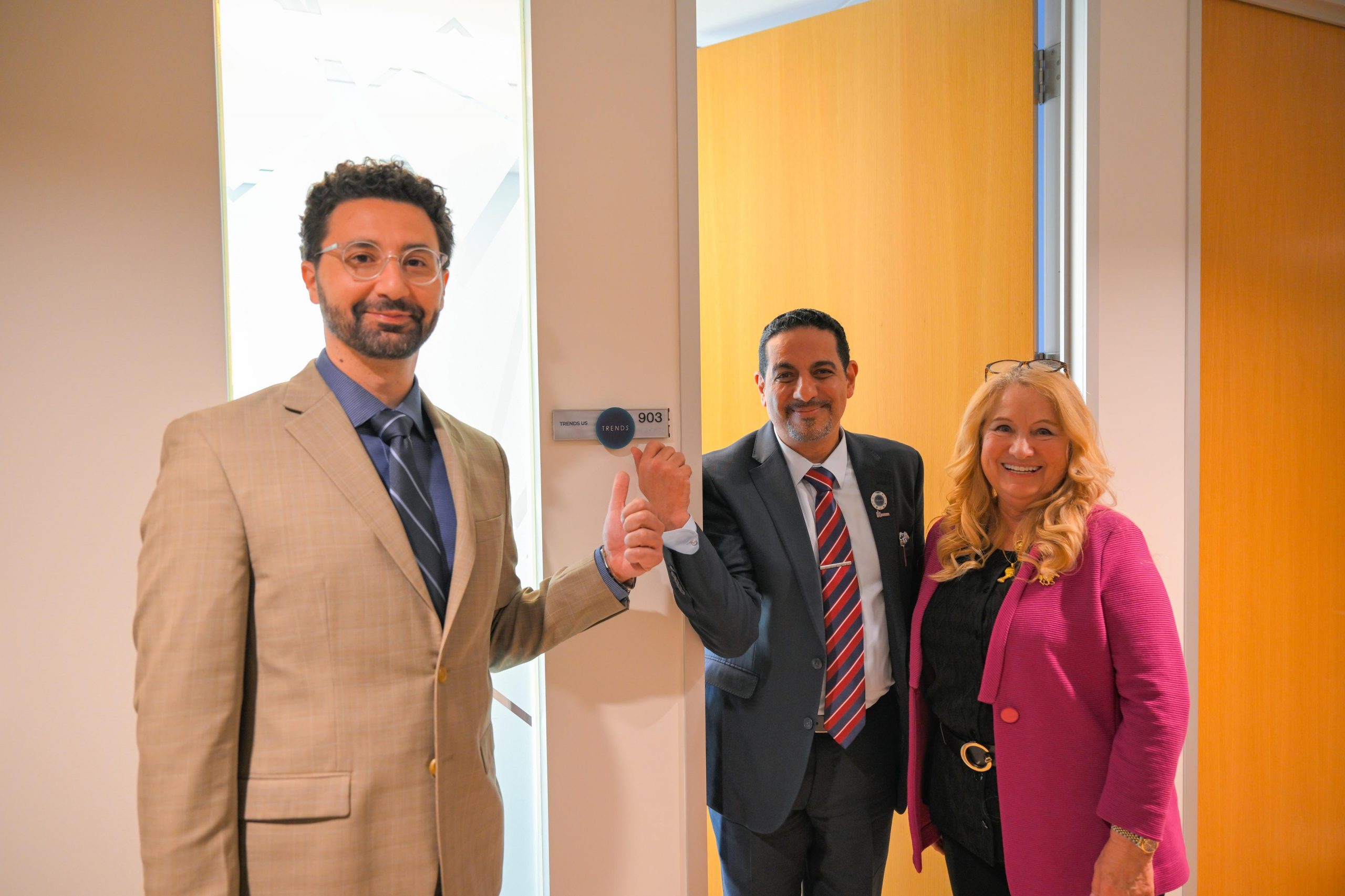
Responsible AI
The third theme addressed Responsible AI in Robotics: A Commitment to Ethical Innovation and Maritime Domain Awareness and Regional Cooperation: The Role of SAAB’s Advanced Technologies. Discussions stressed the importance of adopting a responsible AI approach, particularly in defense and robotics industries where technology intersects with ethics. It was emphasized that SAAB is committed to setting strict standards to ensure the development of intelligent systems that respect human values.
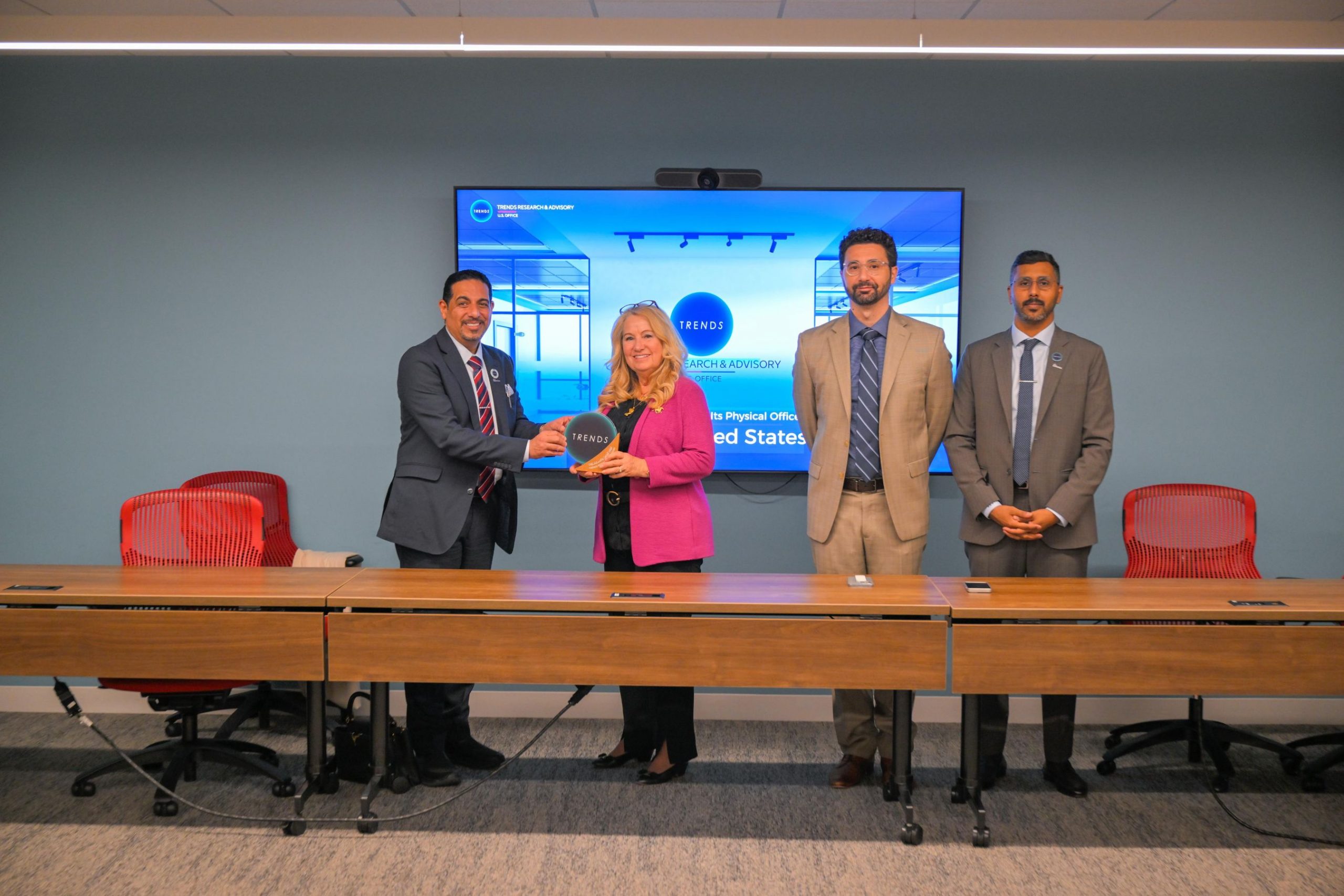
Space
The fourth theme in the TRENDS US office symposium focused on Sovereign Control and Access to Commercial Space Capabilities, Space, and National Security, and the current expectations surrounding the regulation of U.S. space technology exports. Experts highlighted the importance of enhancing national sovereignty in the space domain amid the rapid advancement of remote sensing technologies. They explained that access to high-precision space data has become a critical component of national security.
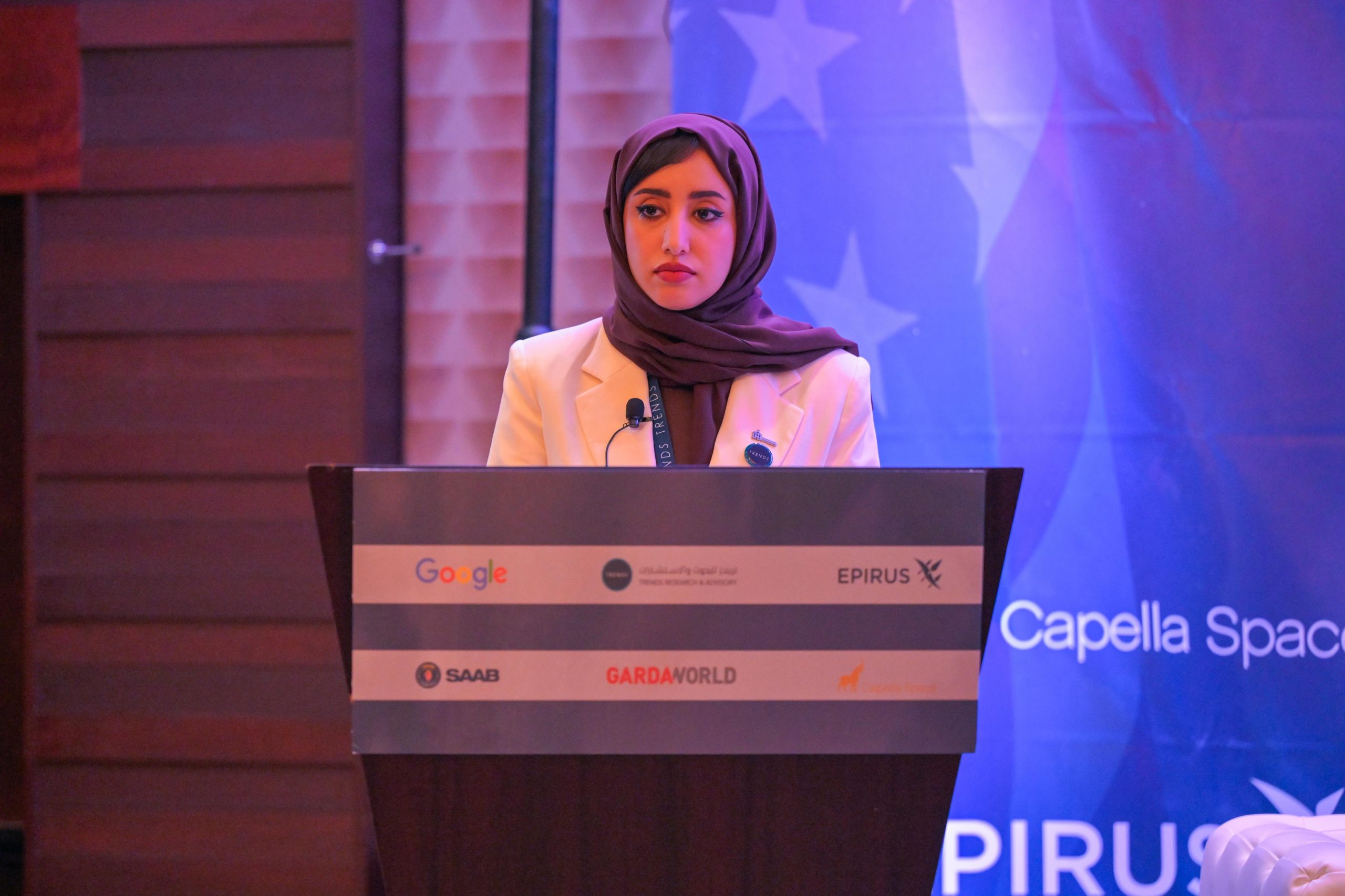
The discussions also touched on recent reforms in U.S. technology export regulations aimed at facilitating cooperation and opening new opportunities for partnerships between Washington and partners in the Middle East and North Africa.



